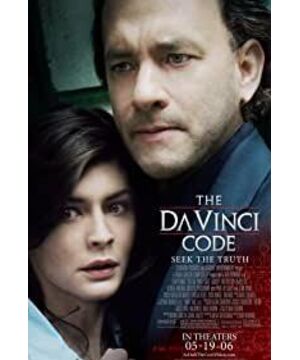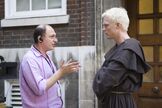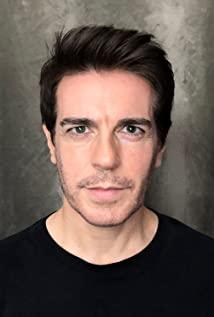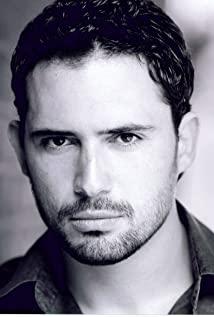Well, let's get back to the legendary movie. Some people say that this film is too loyal to the original. Indeed, I also feel the same. After more than two hours, there was no plot that was unexpected. I can’t help but say that I was a little disappointed; but on the other hand, this film is for those who have not read the book. The audience is less exciting. For example, when I talked about "Our Lady of the Rocks", I still had a cool vest for a while while reading. Of course, some things that were too sharp had to be selectively included in the film. I think there were always Christians protesting outside the set during the filming. If everything were to be piled up, the first one would hinder the release of the film. In addition, the film would be totally unattractive. That’s why I said that it’s not easy for this film to do this. After all, the position of "The Da Vinci Code" in the minds of readers is already quite high.
I have always felt that the tension of text is much greater than that of movies and TV. It can give people unlimited imagination. In this film, the momentum of the Louvre can hardly be shown, and the atmosphere in the gallery is not rendered very well, so that the audience will not feel the difference between the Louvre and ordinary museums. In this way, the crew is in vain. I worked so hard to get the chance to enter the museum for on-site shooting, and the two paintings of Mona Lisa and Our Lady of the Rocks were just a flash (of course, it does not rule out that this is a requirement of the Louvre), the most puzzled is the connection "The Vitruvian Man" was only replaced by a single word, as if this discovery was completely useless for this decryption.
Speaking of the cast, it is undoubtedly very strong, and there is also Tom Hanks, my favorite, but, to be honest, in terms of acting skills, I can’t see the bright spots, maybe the play itself is not How to test an actor's acting skills? Or am I focusing on other aspects? But the image of Ian McKellen's little old man made the audience laugh. I also saw the beauty of long hair in this film (to be honest, I still think her long hair is more beautiful, more serious), and Paul Betteny also fits my imagination. But all the actors who made this movie are more or less under some pressure. After all, the power of Christianity cannot be underestimated. Hanks has lost so much weight and got so old.
Although all the above is a criticism, but the world premiere of 224 million US dollars at the box office is not blowing. In any case, if you do not demand the gap between the film and the novel, this film is still good, especially those who don’t. Those who have read the novel and don’t plan to read it still have to check it out. This is considered a fashion. Those who have read the novel should also go and check it. Compare your imagined scenes with the ideas of famous directors. What's different, maybe you may find that you actually have amazing talents, haha.
Finally, for those of you who haven't watched it yet, don't let some comments about this film dictate your thoughts. As Langdon said, it is not that important whether Jesus is a man or a god. The key is, what do you believe in!
View more about The Da Vinci Code reviews









